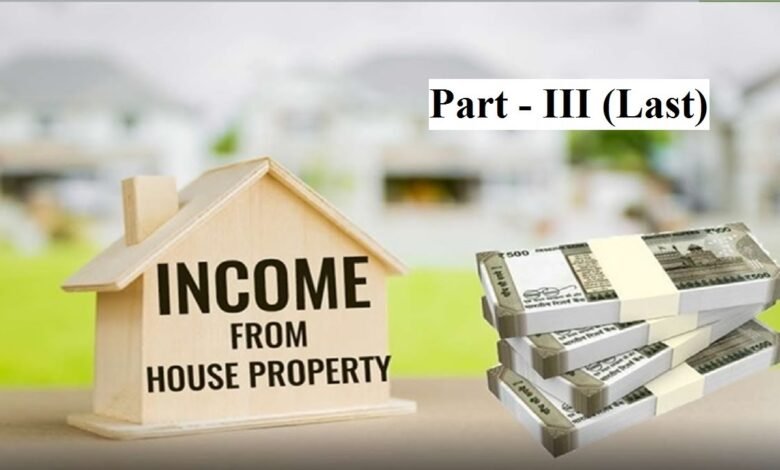Worried About CRA Finding Your Rental Income? Tax Headaches Breaks Down the Process
How does CRA know about rental income?

As a property owner, one of the biggest concerns you might face is the potential discovery of unreported rental income by the Canada Revenue Agency (CRA). Many landlords wonder: “How does CRA know about rental income?” This question is more common than you might think, and the reality is that the CRA has numerous tools at its disposal to track rental income. If you’re worried about falling behind on your tax filings or accidentally overlooking some rental income, Tax Headaches is here to help. In this blog, we’ll break down how the CRA tracks rental income and provide you with practical tips on how to stay compliant to avoid penalties, interest, and other costly consequences.
1. How the CRA Tracks Rental Income: A Closer Look
You might think that rental income can go unnoticed, especially if you’re dealing in cash or receiving payments through informal channels. However, the CRA has a variety of methods for uncovering rental income, and failing to report it can lead to serious trouble.
- Data Matching and Cross-Referencing: The CRA has access to vast databases and uses sophisticated algorithms to match data from multiple sources. For instance, the agency can cross-reference property ownership information, utility records, and mortgage data. If you own a property but fail to report rental income, the CRA’s system might flag inconsistencies between your financial records and available public information.
- Bank Transactions and Financial Reporting: Rental income is often deposited into your bank account, and consistent or large deposits can raise a red flag. The CRA can access certain banking information, and if your bank records show substantial deposits that don’t align with your reported income, they might suspect rental activity. Even if you’re not directly reporting rental income, the agency could use financial records to make connections.
- Real Estate Transactions: When you buy or sell a property, third-party professionals—such as real estate agents, lawyers, and financial institutions—report transaction details to the CRA. If you sell a property and buy another, the CRA is alerted to the change in your holdings and may inquire whether the new property is being rented out. They also track transactions where rental income may be generated but not reported.
- Tenant Information: Another way the CRA can uncover rental income is through tenants themselves. Many tenants pay rent through traceable methods, such as e-transfers, cheques, or direct deposits. Additionally, some tenants may report landlords who fail to disclose rental income, especially if they suspect tax evasion or discrepancies.
2. The Risks of Not Reporting Rental Income
Failing to report rental income doesn’t just mean a bigger tax bill—it can also lead to penalties, interest, and in extreme cases, legal action. The CRA takes unreported rental income very seriously. Here’s why:
- Penalties and Interest: If the CRA discovers that you’ve failed to report rental income, you will be required to pay the taxes owed, plus interest on the unpaid amount. In addition, you could face penalties for negligence, which can quickly add up to a significant sum.
- Audits: The CRA can audit your tax return if they suspect unreported income. During an audit, they’ll review all financial records, including your rental income and expenses. If you can’t provide the necessary documentation or proof of income, the CRA may impose fines or make adjustments to your tax return. In some cases, audits can lead to more severe consequences, including tax evasion charges.
- Legal Consequences: While it may start as a simple oversight, repeatedly failing to report rental income can be considered tax evasion. If the CRA believes you intentionally avoided paying taxes, they can take legal action, including fines or even criminal charges. This is a serious risk that could result in significant financial and reputational damage.
3. How Tax Headaches Can Help You Stay Compliant
At Tax Headaches, we specialize in helping property owners navigate the often-confusing world of rental income reporting. If you’re worried about CRA scrutiny or need guidance on how to properly report your rental income, we’re here to help. Here’s how we can assist:
- Accurate Reporting of Rental Income: We’ll help you correctly report all your rental income, ensuring that you meet your obligations while avoiding costly mistakes. Whether you own one property or several, we’ll guide you on how to include rental income in your tax return.
- Identifying Eligible Deductions: You can reduce your taxable rental income by claiming eligible expenses, such as property maintenance, mortgage interest, property taxes, and insurance. Our team can help you identify which expenses you can deduct, ensuring you’re taking advantage of all available tax-saving opportunities.
- Record Keeping and Documentation: Keeping accurate records is essential for avoiding issues with the CRA. We’ll provide you with tips and tools to maintain organized records of rental income, expenses, and property-related documents. If you ever get audited, these records will protect you.
- Audit Support and Representation: In the event of an audit, we’ll stand by your side to help you navigate the process. We can assist in gathering the necessary documents, communicating with the CRA on your behalf, and ensuring that everything is in order.
- Preventing Tax Headaches: By working with Tax Headaches, you can ensure that you stay compliant with all CRA regulations and avoid potential tax issues down the road. Our expert advice will help you manage your rental income reporting and reduce your risk of penalties or audits.
4. Best Practices for Rental Property Owners
To avoid drawing attention from the CRA, follow these simple best practices for staying compliant:
- Report All Rental Income: Whether it’s cash, e-transfer, or cheque, you must report every dollar you receive in rental payments. Failing to report even a small amount can lead to big problems.
- Keep Detailed and Accurate Records: Track all rental income and expenses carefully. Maintain copies of rental agreements, receipts, bank statements, and any other relevant documentation.
- Separate Personal and Rental Finances: Keeping your rental income separate from your personal income makes it easier to track and report. Open a dedicated bank account for your rental property transactions to simplify this process.
- Consult a Professional: Tax laws surrounding rental income can be complex, and it’s easy to make mistakes. A tax professional can help you navigate the rules and ensure you’re meeting your obligations while maximizing your deductions.
5. Final Thoughts
If you’ve ever wondered “how does CRA know about rental income?”, the answer is simple: the agency has various tools and systems in place to track rental income, and they don’t miss much. The best way to avoid penalties, audits, and legal issues is to report all your rental income accurately and keep your records organized. At Tax Headaches, we’re here to help you every step of the way. Whether you need assistance with filing taxes, understanding deductions, or avoiding an audit, our team of experts is ready to provide you with the support you need to stay compliant and stress-free.
Contact Tax Headaches today to learn how we can help you navigate the complexities of rental income tax reporting and ensure you remain on the CRA’s good side.



